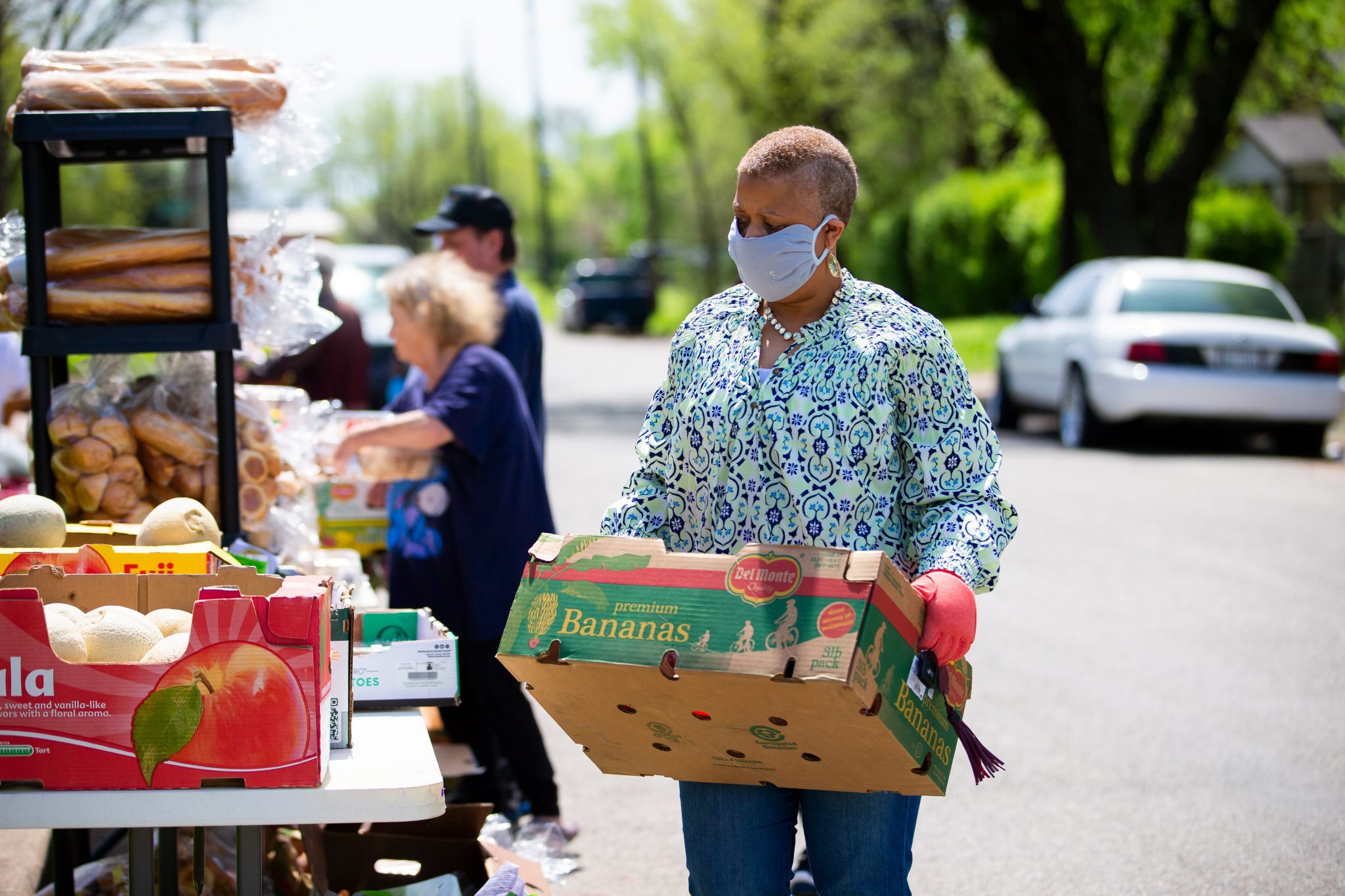Live Well Alabama

AUBURN UNIVERSITY, Ala. – Because of COVID-19, the staff within the Alabama Extension Supplemental Nutrition Assistance Program-Education department (SNAP-Ed) started working remotely in March. However, the desire to provide research-based nutrition education and work toward better food access for its target audience never ceased. From the state leaders to the 34 county educators throughout the state, the department put the people of Alabama first.
The first plan was to figure out how SNAP-Ed educators could continue to engage with their communities. Sofia Sanchez, Alabama Extension community health specialist and registered dietitian, said the team began to reach out to community partners throughout the state to keep spreading the department’s message.
“We wanted to find out how we could continue to reach our audience and provide nutrition education and information during this new normal,” Sanchez said.
Katie Funderburk, Alabama Extension specialist and registered dietitian, said the SNAP-Ed staff never took a day off during the pandemic. When COVID-19 began to sweep across the country, the staff started reaching out to partners. They wanted to learn how emergency food sites were serving their communities and what those new needs were. Additionally, educators worked closely with schools to see where school lunches were available in the communities and where food pantries were set up to assist those in need.
Funderburk said the state staff developed a partnership with End Child Hunger in Alabama (ECHA). County educators helped ECHA develop a statewide website to keep participants informed about where help was available in each county. For more information, visit ECHA’s interactive resource map, aub.ie/foodguides.
Keeping a Presence
Funderburk said it was vital for state staff and each county educator to quickly establish a new way of communication. Through weekly Zoom meetings, the department was able to ensure Alabama residents’ needs were still met. In the beginning stages, she said it was about creating a plan for the state. They then had to determine how to coordinate that information to the public through the educators. State staff and county educators met weekly to work on strategies to continue providing resources to the public.
“One of the biggest things I’ve been impressed with is that the educators were determined to find a way to keep working and serving their communities. Nobody said, ‘we’re in a pandemic, and I shouldn’t be working,’” Funderburk said. “SNAP-Ed educators love their jobs, and they know that now, more than ever, SNAP-Ed is needed in their communities.”
Erin Reznicek, Alabama Extension community health specialist, said it was essential to keep the relationships formed with community partners strong from the start of the pandemic.
“We still have a presence in every site that we were a partner with before COVID-19,” Reznicek said.
This presence might look a bit different with limited face-to-face contact. However, educators are still working with schools, farmers markets and grocery stores to serve their clients better. Educators are also working with food banks to secure additional donations and with community gardens to grow additional produce. They look to help these sites determine how to put those resources to best use. Anywhere that nutrition, physical activity, food access and food resource management education and practices are needed with a limited-resource audience, SNAP-Ed is serving.
“It’s just figuring out ways we can still be a presence and help each site with food access and physical activity throughout Alabama,” Reznicek said.
Putting Plans into Action
County educators also worked to deliver SNAP-Ed programming virtually, while also connecting with partners in the region. This virtual work included programs such as Eat Better, Move More, a nutrition and physical activity youth summer program. Educators also created videos for social media about food budgeting, nutrition and COVID-related food and nutrition resources and partnerships. Also, community partners worked with educators to meet several community needs, including
- harvesting more than 400 pounds of strawberries from a community garden and donating them to families in need
- securing $2,800 in grants through early August to provide food for the HELP Center, a food pantry and clothing center in their community
- implementing a Blessing Box, which is a free-standing structure that accepts food and non-perishable donations
Looking Toward the Future
Body Quest will be available once again in the fall when children head back to the classroom. Some counties in Alabama are allowing educators into the schools for a face-to-face program. Others are only allowing virtual options. The SNAP-Ed state staff has completely revamped its flagship youth program to make it available in a virtual format.
Funderburk said the program would work for schools regardless of what their situation during COVID-19 looks like. Full details about what the new virtual Body Quest format entails will be coming soon.
“We’ll keep trying to come up with the best way to reach everybody and the best ways to deliver education, regardless of what the situation looks like in the coming year,” Funderburk said. “We’re adapting and poised to keep moving forward.”
Risen to the Occasion
Sondra Parmer, Alabama Extension program leader for nutrition programs, said the work at the state level didn’t stop because of the pandemic. She said the responsibilities of submitting plans, proposals and providing programming for the summer and fall seasons never ceased.
“We had to coordinate things and ensure engagement among county educators and Extension staff, which changed by the day,” Parmer said. “The state and county SNAP-Ed staff have risen to the occasion. They met those challenges head-on and successfully as evidenced by the fact that we still have a successful program. We continue to offer high-quality, research-based nutrition education and technical assistance to partnering organizations to meet the needs of the people we serve.”
For more information about SNAP-Ed and its mission, visit LiveWellAlabama.com or visit Facebook, Twitter or Pinterest

